本文给出一个整合Maven+SpringMVC+SpringFOX+Swagger的示例,并且一步步给出完成步骤。
本人在做实例时发现 http://blog.csdn.net/zth1002/article/details/46927187 中,Spring必须是4.0以上版本。
目标
在做项目的时候,有时候需要提供其它平台(如业务平台)相关的HTTP接口,业务平台则通过开放的HTTP接口获取相关的内容,并完成自身业务~
提供对外开放HTTP API接口,比较常用的是采用Spring MVC来完成。
本文的目标是先搭建一个简单的Spring MVC应用,然后为Spring MVC整合SpringFox-Swagger以及SpringFox-Swagger-UI,最终,达到Spring MVC对外开放接口API文档化。
如下图所示:
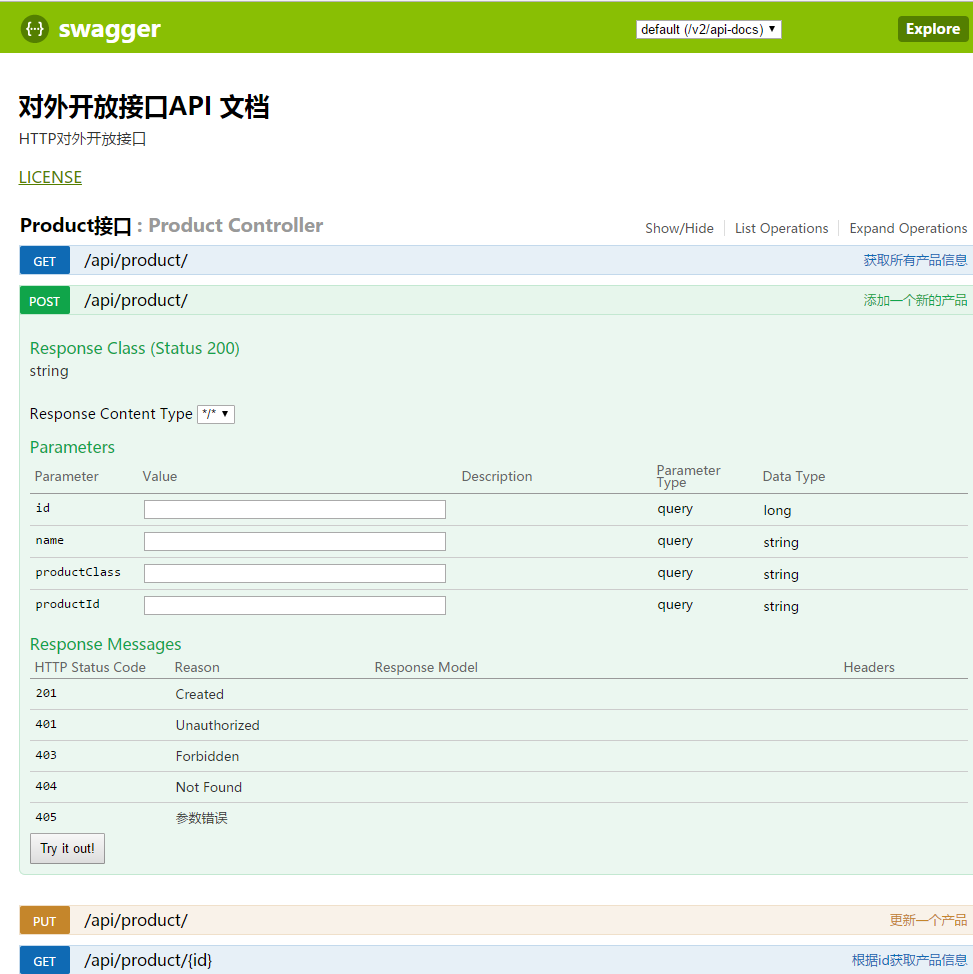
搭建SpringMVC工程
新建Maven工程
Eclipse中,File --> New --> Maven Project,
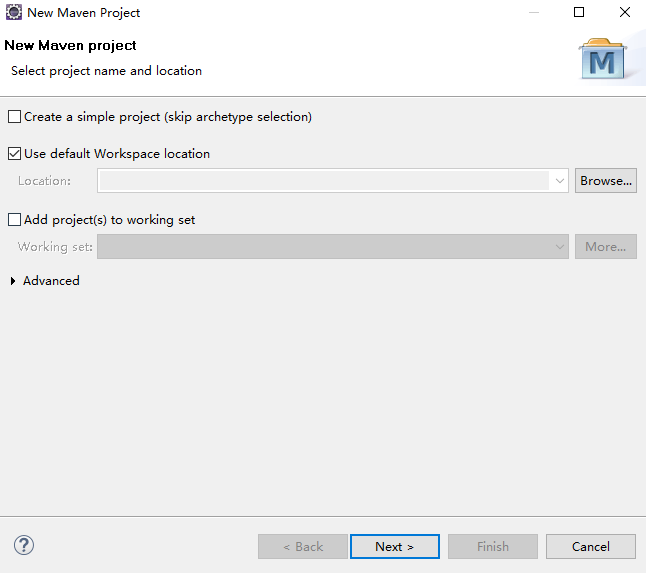
点击“Next”按钮, 然后选择 “maven-archetype-webapp”,
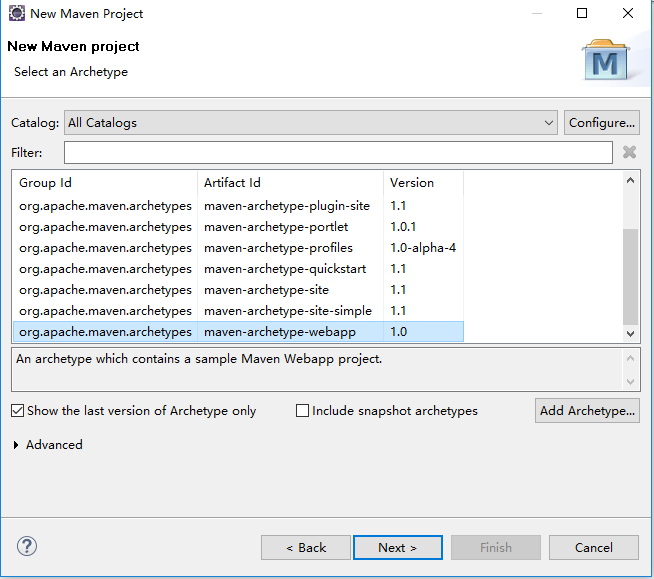
继续点击“Next”按钮,然后指定
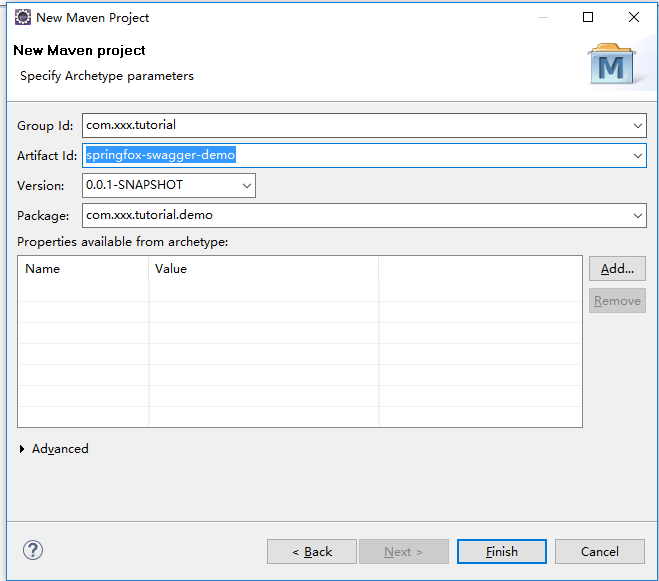
点击“Finish” 按钮结束~ 就这样,一个简单的Web工程就建好了~
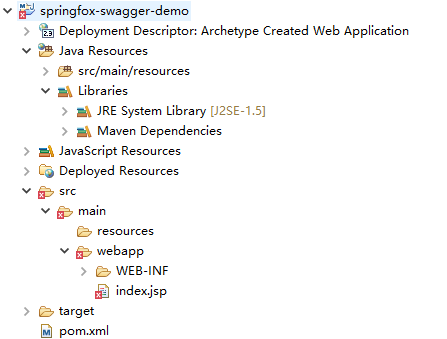
但是,
默认是使用J2SE-1.5, 配置一下Build Path,使用本地机器上安装的JDK
(本文中使用的是JDK 1.7),工程默认字体是GBK,将其改成UTF-8
完成后,Maven工程的结构如下图所示:
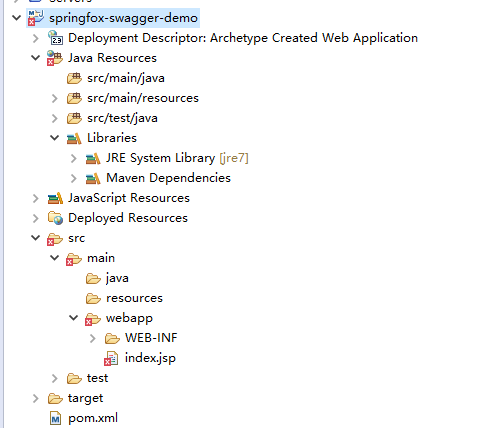
引入Spring依赖包
在本示例中,因为简单,所以只要引入如下几个jar包就好了~
<dependencies>
<!--引入Spring依赖包 -->
<dependency>
<groupId>org.springframework</groupId>
<artifactId>spring-core</artifactId>
<version>${spring.framework.version}</version>
</dependency>
<dependency>
<groupId>org.springframework</groupId>
<artifactId>spring-context</artifactId>
<version>${spring.framework.version}</version>
</dependency>
<dependency>
<groupId>org.springframework</groupId>
<artifactId>spring-webmvc</artifactId>
<version>${spring.framework.version}</version